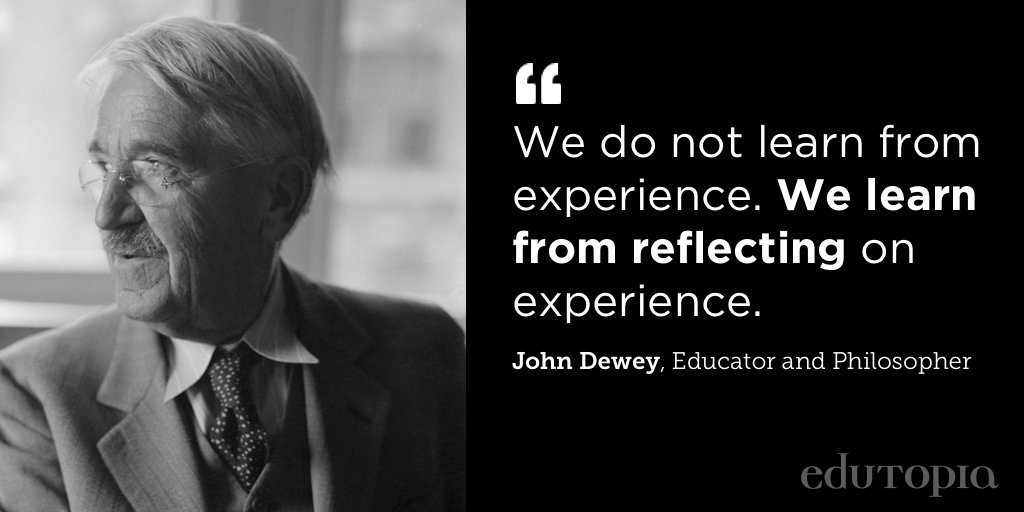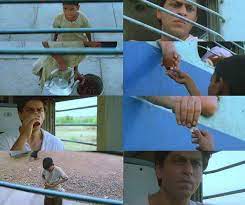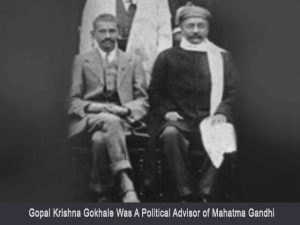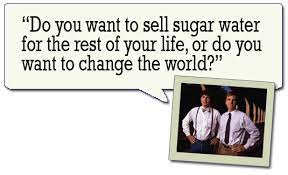A short quote can reveal wisdom that is more invaluable than studying encyclopedias.
As a learning and change specialist, here is a gem that sparkles.

Image Courtesy – Edutopia
If this be true, how can we do better in learning? What are the areas we can work on?
The simple answer that follows from Dewey is that we can
– we can create learning at the level of experience
– we can create learning at the level of reflection
In simple words, we can encourage people to open up to new experiences and new thinking.
Learning at the level of experience

Swades Movie
In the movie, Swades; Kaveri Amma sends Mohan on an errand to a village. Mohan works at NASA and has a blinkered perspective on how life is meant to be. Kaveri Amma knows that Mohan is going to undergo an upheaval during his journey through impoverished India. And she is right. Mohan realises that even clean water is hard to come by as he seeks drinking water in a train. He sees that people are eking out a living amidst the lack of basic necessities. The experience makes him learn.
Gopal Krishna Gokhale was keenly following Mohandas Gandhi’s exploits in South Africa. Gokhale recognizes Gandhi to be the future leader of india’s nationalist movement. He invites Gandhi to return to his motherland. Gandhi does so in 1915. On meeting him, Gokhale decisively shapes Gandhi’s future. He makes Gandhi promise not to make any comment or statement on any of India’s public questions for one whole year. And he funds a one-year travel tour for Gandhi to experience first-hand what was happening in the country.

Image courtesy – ritiriwaz
What is being done? A masterful educator is facilitating learning in the form of new experiences – on celluloid and on the canvas of history!
One day in 2009, Travis Kalanick and Garrett Camp were stranded on the snowing streets of Paris and could not get a cab. This is an experience millions of people have gone through. But, these two guys got something out of the experience that made it a new one. They asked a question – What if one could hire a cab by using the phone? The idea of Uber was born.
In 2007, Brian Chesky and Joe Gebbia were struggling to pay their rent. A conference in town had many people scouring all over for a place to stay. All the hotels were booked. The two friends decided to rent out air mattresses in their apartment to people and make money for paying their rent. The experience became a new one because they then asked a question – What if people could rent out spare space in their homes for travellers? Enter Airbnb.
What has happened? An everyday experience became a new one because of the new thought that followed it. What is important is to recognize that it is the experience that came first.
Learning at the level of reflection
Steve Jobs was searching for a CEO for Apple and had identified John Sculley, president of Pepsi. Apple in 1983 was not a biggie as compared to Pepsi, an established company. Jobs had correctly surmised that money won’t be a swaying factor.
What did he do?
He sent what is now a famous message to Sculley.
Do you want to sell sugar water for the rest of your life, or do you want to change the world?
This was a powerful question for Sculley to reflect on. He was compelled to assess his life-experience so far, the choices he had made and how his life will pan out if he were to continue along the same course. The new reflection on his life experience made him join Apple.

Image Courtesy – John Erlichman
Reflection does not change experience per se, but can change the meaning of the experience. With a new meaning, you can be complete with the experience and learn from it.
Many leaders and successful achievers derive their cutting-edge from the drive instilled in them by a very demanding parent or father-figure. Sure, they are successful, but, they resent how they were controlled and pushed to the edge. Years later, then can’t bring themselves to forgive.
A sensitive and guided reflection makes them experience life as seen from the eyes of their parent or father-figure. They now understand how the parent and father-figure were themselves reacting to the trauma of their own conditioning and formative experiences. It is now possible to see how they came to be so forceful and domineering.
The new reflection now gives you a choice. You can hold on to your misgivings or you can let go and forgive. If you choose to let go, you are free. You have not changed your life-experience, but you have found new meaning that has brought you understanding, peace, and acceptance. Forgiveness heals.
A student went to meet a Zen master. The Zen master asked, what is your challenge? The student said – I have a lot of anger within. The Zen master promptly said, ‘Show me! Show me the anger!’ The surprised student replied, ‘Master, I cannot summon anger that way! It does not come as per my will.’ The Zen master smiled and said, ‘ Ah, if you cannot be angry at will, then it is not a part of your permanent nature. if it were, you would have been able to make it appear as per your wish!’ The student found peace in this unassailable observation, an enlightening reflection to the core.
To sum up, both experience and reflection are critical to learning. Rather than be trapped by ‘either-or’ thinking, it is more useful to find what you are focusing more on, perhaps to the detriment of other. You may be immersing yourself constantly into new experiences, but not really doing deep reflection, just flitting from one experience to another the way a butterfly moves from flower to flower. Or you may be so self-engrossed in deep reflection that you are blinded to the everyday reality of life. You live in the castle of your thoughts and the castle-gates are firmly shut to outside reality.
The last words, are invariably borrowed from the wisdom of Peter Drucker.
Follow effective action with quiet reflection.
From the quiet reflection will come even more effective action.
What a beautiful write up! I am doing a workshop on learning how to learn and could relate.
Learning is multidimensional activity and today’s discussion was on attitude!
If you are okay then can I send them as extra read?
Very insightful and thought provoking write up. Also the examples given are making the absorption of the message being communicated very easy.
Also the examples will help a person like me retain my insights from this well written article